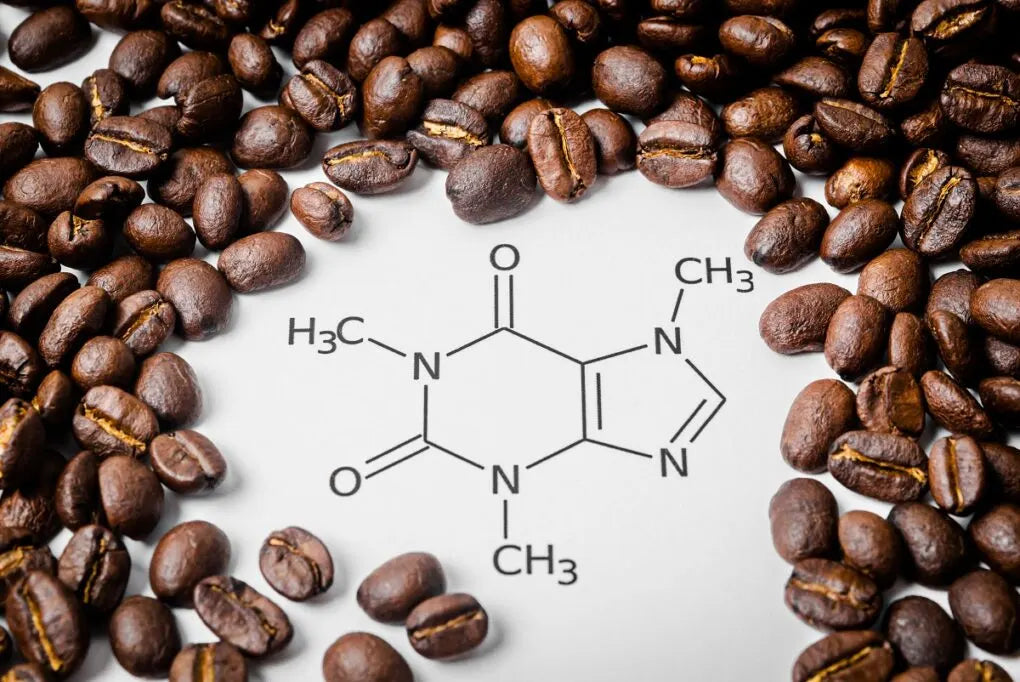Caffeine is a popular stimulant known for its ability to enhance alertness and combat fatigue. However, not everyone can handle or wants the full caffeine content found in regular coffee. This has led to the widespread popularity of decaffeinated or "decaf" coffee. But how much caffeine is actually in decaf coffee? This question is not as straightforward as it might seem, and the answer involves understanding the decaffeination process, the regulations around it, and the variations that can occur. Here, we'll delve into the science, the myths, and the realities of caffeine in decaf coffee.
The Decaffeination Process
Decaffeination removes most, but not all, of the caffeine from coffee beans. Several methods are used to achieve this:
-
Solvent-Based Methods:
-
Methylene Chloride or Ethyl Acetate: These solvents are used to extract caffeine from coffee. The beans are steamed to open their pores, then soaked in the solvent which binds with the caffeine. After this, the beans are thoroughly washed to remove any solvent residue.
-
Swiss Water Process: This method is solvent-free and uses only water. Green coffee beans are soaked in hot water, which extracts the caffeine along with flavor compounds. This solution is then passed through activated charcoal to remove the caffeine. The beans are then reintroduced to this now caffeine-free solution to reabsorb the flavors.
-
-
Carbon Dioxide Method: Here, CO2 acts as a solvent under high pressure and temperature, selectively removing caffeine while trying to preserve the bean's flavors.
Each method can slightly vary the amount of caffeine left in the beans, but the goal is always to reduce it significantly.
Regulatory Standards
In the United States, the FDA states that decaf coffee must have 97% of its caffeine removed. However, this still allows for a small amount of caffeine to remain:
-
FDA Regulations: Under these regulations, if you start with a bean containing 100mg of caffeine per serving (a common amount for regular coffee), decaf could legally contain up to 3mg of caffeine per serving.
-
European Standards: Similar but slightly different, Europe might allow up to 0.1% residual caffeine, which could mean up to 10mg in a 100mg starting point.
These standards are not uniform globally, leading to variations depending on where the coffee is processed and sold.
Actual Caffeine Content in Decaf Coffee
Despite regulations, the actual amount of caffeine in decaf coffee can vary:
-
Testing Variations: Different brands or batches might show different caffeine levels due to the effectiveness of the decaffeination process, the type of bean, and how it's brewed. Tests have shown decaf coffee ranging from 0 to 15 mg per 8-ounce cup.
-
Brewing Method: The way coffee is brewed can also affect caffeine content. Espresso, for instance, might extract more caffeine in less water, so decaf espresso could have slightly more caffeine per ounce than decaf drip coffee.
-
Bean Type: Different coffee beans (Arabica vs. Robusta) naturally have different caffeine contents, which will reflect in their decaf versions.
-
Brand Variability: Some brands might be more stringent in their decaffeination process, aiming for lower caffeine levels than the minimum required.
Health Implications and Consumer Expectations
For many, the appeal of decaf is to avoid caffeine's stimulating effects, which can include:
-
Sleep Disturbance: Caffeine can interfere with sleep, especially if consumed later in the day.
-
Anxiety and Jitters: Some individuals are sensitive to even small amounts of caffeine.
-
Heart Health: For those with certain heart conditions, reducing caffeine intake can be crucial.
However, for people who are highly sensitive to caffeine or are under strict medical advice to avoid it entirely, even the small amount in decaf might need consideration:
-
Medical Advice: Individuals on medications that interact with caffeine or with conditions like anxiety disorders or heart conditions should consult healthcare providers.
-
Pregnancy: Pregnant women are often advised to limit caffeine intake, and even decaf might contribute to their daily limit.
Myths vs. Reality
There are several myths around decaf coffee:
-
Myth: Decaf is Completely Caffeine-Free: This is false; as we've seen, decaf still contains trace amounts.
-
Myth: Decaf Tastes Worse: Modern decaffeination methods have significantly improved taste, though some argue there's a slight difference.
-
Myth: Decaf is Unhealthy: There's no solid evidence that decaf is less healthy than regular coffee; in fact, both offer antioxidants.
Consumer Tips
-
Read Labels: Look for certifications if you're concerned about solvents used in decaffeination.
-
Brewing Control: If you want to minimize caffeine intake, consider how you brew your coffee; longer brew times can extract more caffeine.
-
Experimentation: Since brands can vary, try different decaf coffees to find one that suits your taste and caffeine tolerance.
Decaf coffee is not entirely caffeine-free but significantly reduces caffeine content, making it suitable for those looking to enjoy coffee's taste and health benefits without the full stimulant effect. Understanding the decaffeination process, regulatory standards, and individual product variations can help consumers make informed choices. Whether for health reasons or lifestyle choices, the decaf option allows coffee lovers to enjoy their favorite drink in a way that aligns with their needs and preferences.
In a world where coffee is more than just a beverage—it's a ritual, a comfort, and sometimes a necessity—decaf provides a bridge for those who wish to partake without the caffeine kick. Remember, though, even in decaf, every cup tells a different story, flavored by the beans, the process, and the hands that brew it.


0 comments